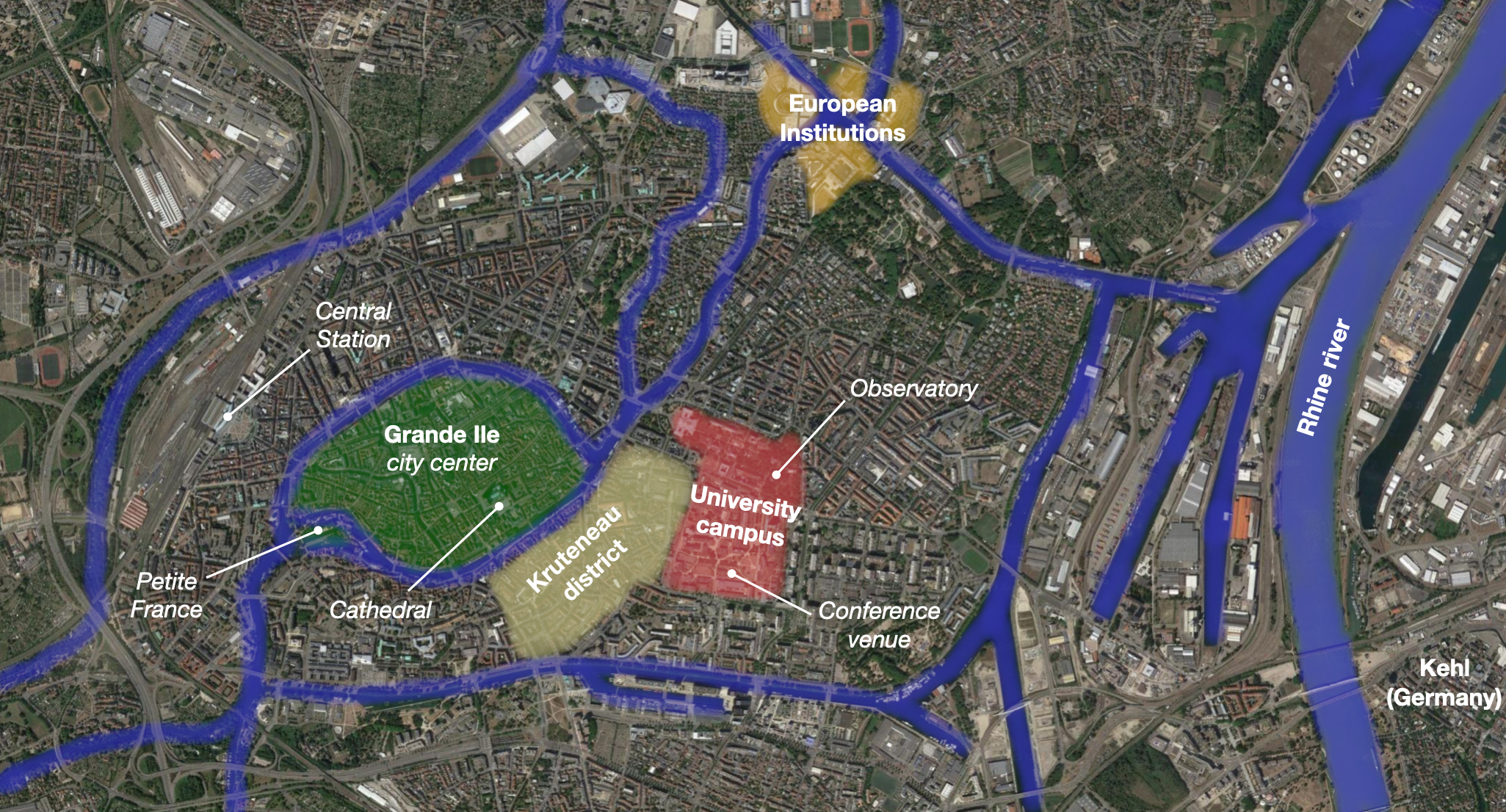

Expand the map to a new tab (square icon to the top-right) to see all our recommendations for restaurants and bars!
Strasbourg offers a large diversity of hotels, with a wide range of prices.
We recommend you choose an hotel in the city center (Grande Ile, near the Cathedral) or in the Kruteneau district (between the University and the city center). Numerous budget options can also be found near the train station. Don't hesitate to contact us if you need more precise recommendations.
By law, you will have to pay a city tax separately, usually upon registration. The exact amount depends on the neighborhood and the hotel class but should not be more than a few euros per night. Note that, if the total is less than a couple of euros, some hotels may ask you to pay it by cash.
For lunch breaks, we recommend staying around the campus. In most places, there is no need to book for lunch, unless you go with a big group.
Many restaurants can be found west of the conference venue in the Kruteneau district: Place Saint Nicolas aux Ondes, Place du Foin, Rue des Balayeurs, Rue de Zurich.
Fast food and sandwich shops: Rue de Rome (south of the conference venue), Boulevard de la Victoire (north, where the tram goes). Almost all bakeries sell fresh homemade sandwiches or salads.
For dinner, we recommend to go toward the city center: this is where you will find most of the options, for all tastes and budgets. Check out our suggestions on our interactive map.
Note that most restaurants are not open the entire day, and some are even closed some days of the week. Check online before going!
Can one survive in Strasbourg without speaking French?
Bien sur! You will ear many languages in the streets of the Capital of Europe. Most of the writing will be in French by default, but many restaurants and bars have English and German menus, and most of the waiters know enough English and/or German to communicate. Things will get significantly harder in smaller towns and in the countryside.
You will notice that just trying to say a few basic words in French will go a very long way:
"Bonjour ! Excusez-moi, parlez-vous anglais? / Oui / Non / S'il vous plait / Merci / Au revoir"
(Hello! Excuse me, do you speak English? / Yes / No / Please / Thank you / Good bye)
Simply showing that, at least, you tried will excuse any mistake! The huge majority of French people are very happy to welcome visitors and will do their best to help you: we are nice and gentle people, even if we have "pain" for breakfast!
Weather
Alsace has some of the warmest summers of metropolitan France, often hotter than on the Riviera! In late August, expect sunny and warm weather in Strasbourg (20-25 deg C). Occasional thunderstorms can bring heavy rain in the evening, but this usually does not last very long.
Tipping
By law, service is ALWAYS included in France, and you don't have to tip. If you want to reward exceptional service, you can leave two to five euros in cash on the table when you leave the restaurant.
Tap water (une carafe d'eau) is always free when you have lunch and dinner, but you will likely be charged for bottled water (sparkling or not) if you don't ask for tap water explicitly. For public health reasons, free refills of anything but tap water are forbidden in France.
Cash
Cash tends to disappear in cities, but could still be the only option in some remote places, or when paying small amounts (less than a few euros, typically in some bakeries). You will find a lot of ATMs in touristic places, train stations, and around the campus.
Power outlets
Type C, E and F (220 V, 50 Hz), as in most of Europe.
Internet and roaming
Eduroam is widely available on campus, and at the conference venue. If you have a data plan from a country of the European Union, you won't pay anything extra when calling, texting, and roaming in France.